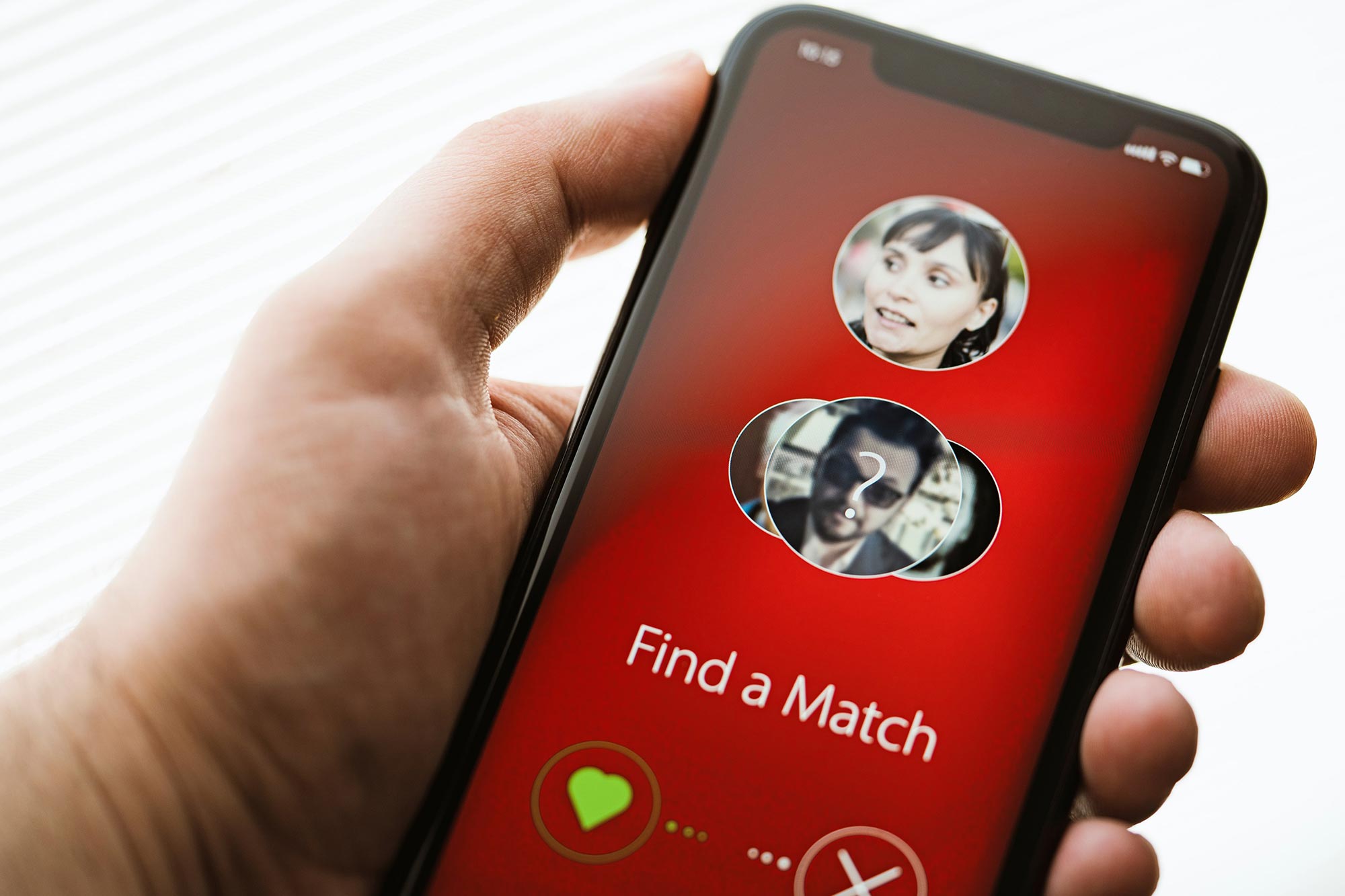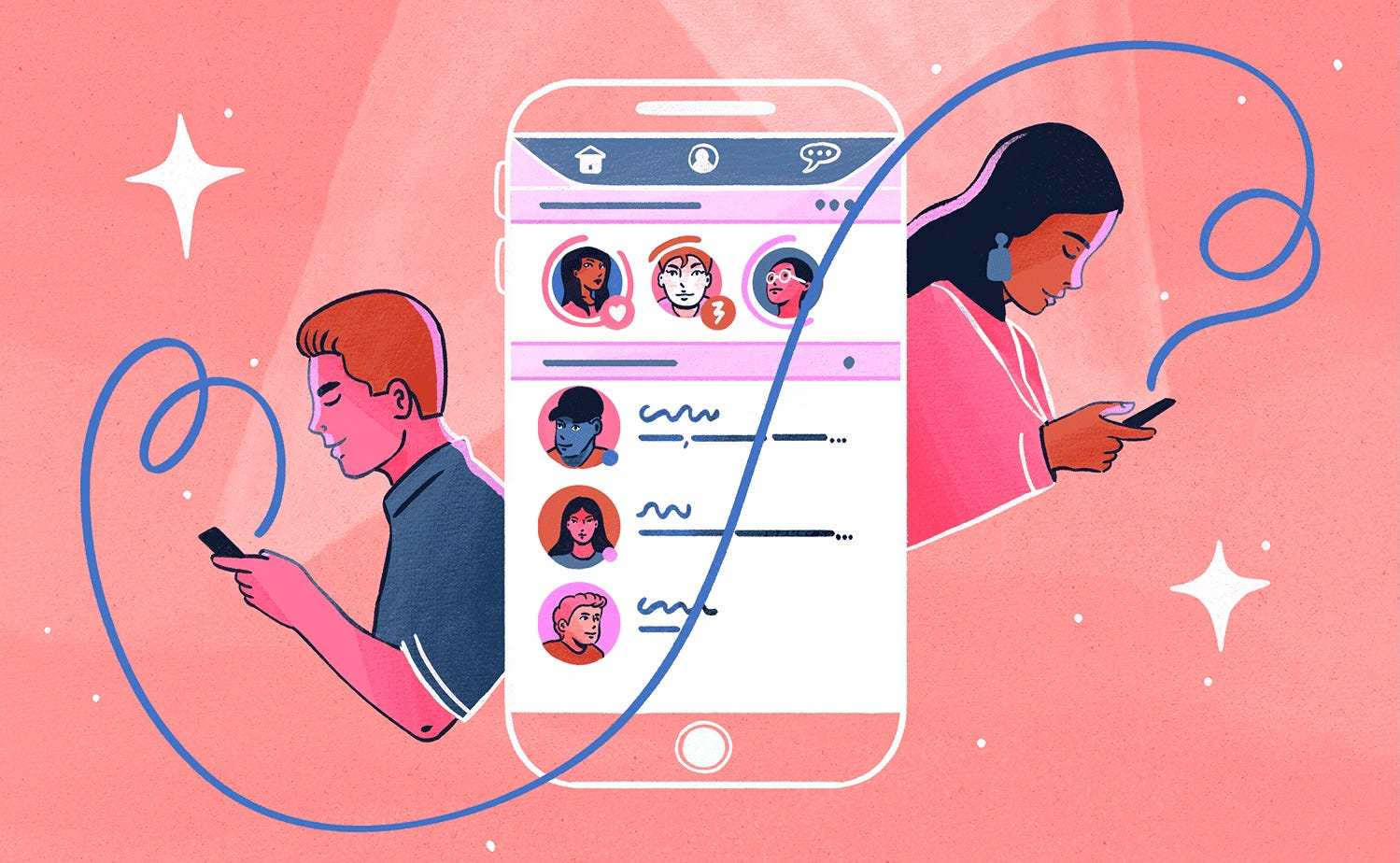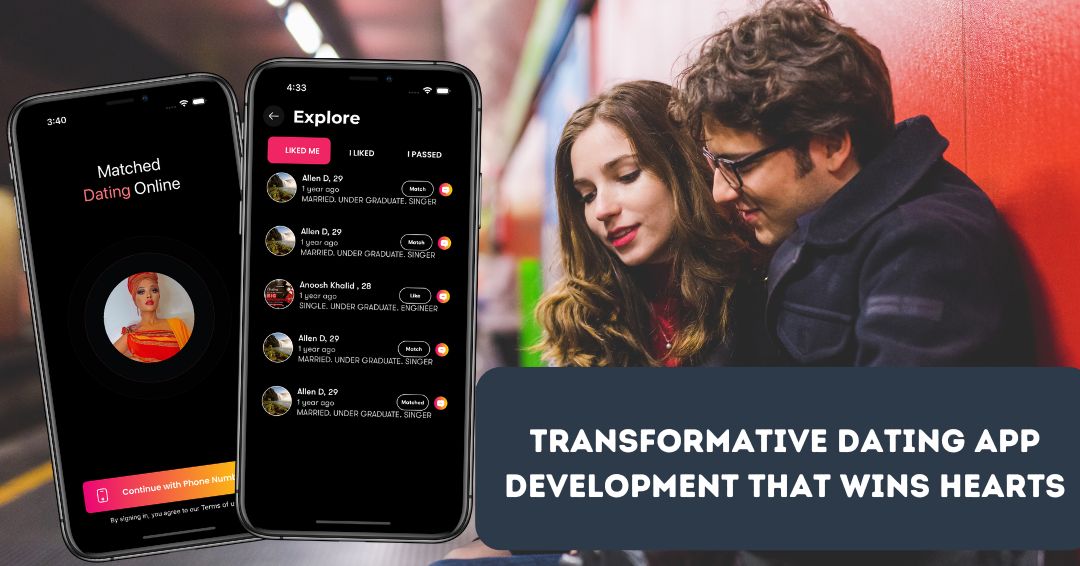
Introduction
Evolution of Online Dating Apps
The evolution of online dating apps has transformed how individuals meet and form relationships. From the early days of basic matchmaking websites to the sophisticated mobile applications we see today, the journey has been nothing short of revolutionary. Initially, platforms like Match.com launched in 1995, connecting potential partners based on questionnaire results. Fast forward to today, and apps like Tinder and Bumble have gamified the process, allowing users to swipe right or left, making dating a more interactive experience.
This evolution has led to significant changes in social norms and expectations around dating. Nowadays, using an app to find love is not only common but also widely accepted. According to recent surveys, over 40% of users find their partners through these platforms, showcasing their impact on modern relationships.
Psychological Factors in Online Dating
While the technology behind dating apps is impressive, the psychological factors at play are equally fascinating. Understanding how individuals behave in these digital spaces can provide valuable insights into their relationships, needs, and desires. Here are a few psychological aspects worth considering:
- Choice Paradox: With countless profiles to swipe through, users often experience “choice overload,” leading to anxiety and indecision.
- Idealization: Users may portray an idealized version of themselves, emphasizing the importance of self-presentation in attracting potential partners.
- Confirmation Bias: People may unconsciously seek out partners that reflect their pre-existing beliefs and preferences, filtering out those who don’t fit their perceived idea of compatibility.
These psychological components significantly influence the online dating landscape, affecting how users interact and form connections, making a comprehensive understanding of online dating crucial for both individuals and service providers.

Understanding Online Behavior
Social Influence and Decision Making
Diving deeper into online behavior, social influence plays a significant role in how users interact on dating apps. These platforms are designed to tap into our innate desire for social connection. As individuals navigate profiles, the opinions and actions of others can heavily influence their choices. For example, seeing a friend’s connection or a popular profile can create a sense of social validation, prompting users to engage in similar behaviors, such as swiping or messaging.
A few key elements illustrate how social influence shapes decision-making:
- Social Proof: Users may gravitate towards profiles with numerous matches or messages, interpreting this as a form of endorsement.
- Normative Influence: Those who observe peers actively dating via apps may feel social pressure to participate, impacting their willingness to try online dating.
- Peer Feedback: Drafting messages or selecting photos often involves seeking opinions from friends, highlighting collective decision-making.
Self-Presentation and Impression Management
In the realm of online dating, self-presentation goes hand-in-hand with social influence. Each user curates their profile meticulously, crafting an impression that appeals to potential matches. This act of self-presentation can result in heightened concern about how one is perceived.
Consider these strategies for effective self-presentation:
- Profile Photos: Users often choose images that showcase their best angles, interests, or lifestyles to attract attention.
- Bio Crafting: Witty or intriguing bios are carefully designed to stand out, often reflecting a balance between authenticity and idealization.
- Behavioral Cues: Engaging promptly, using emojis, or even the timing of messages can all contribute to the impression one wishes to create.
These aspects are crucial for successful online interactions, as individuals navigate the delicate balance between authenticity and appeal. Understanding these dynamics allows users to forge genuine connections in an environment that often blurs the lines between reality and perception.

Matching Algorithms and Compatibility
Data Analysis and Match Suggestions
Continuing our exploration of online dating behavior, matching algorithms play a pivotal role in determining compatibility among users. These algorithms sift through enormous datasets, analyzing user preferences, behaviors, and interactions to make informed match suggestions. Consider this: every swipe, click, and message contributes valuable data that the platform can leverage for better matchmaking.
Here’s a glimpse into how data analysis shapes our dating experiences:
- User Profiles: By examining profile details like interests, location, and demographics, algorithms narrow down potential matches based on shared traits.
- Behavioral Patterns: Analyzing user activity, such as swiping habits and response rates, provides insights into the types of profiles a user is likely to engage with.
- Feedback Loop: As users interact with suggested matches, the algorithms learn which profiles perform well, refining future suggestions for enhanced satisfaction.
This data-driven approach not only increases the likelihood of meaningful matches but also enhances user engagement.
Personality Tests and Compatibility Metrics
In addition to traditional data analysis, personality tests and compatibility metrics have emerged as popular tools for assessing potential matches. Many dating platforms incorporate these tests to gauge deeper personality traits, creating a more holistic picture of what makes individuals compatible.
Here are a few ways these tests impact online dating:
- Popular Assessments: Tools like the Myers-Briggs Type Indicator or attachment style quizzes can reveal insights into relationship dynamics and preferences.
- Compatibility Scores: Some apps use algorithms to generate compatibility scores based on the results of these assessments, guiding users toward profiles that are more likely to align with their values and lifestyle.
- Enhanced Insights: By understanding their own personality traits, users can approach relationships with greater awareness, making informed decisions about whom to pursue.
Ultimately, the integration of personality tests within matchmaking processes enriches the online dating experience, promoting connections that are not only instant but also sustainable.

Communication Dynamics
Texting Patterns and Response Rates
As users navigate the online dating landscape, communication dynamics, particularly texting patterns and response rates, emerge as critical elements in building relationships. The way individuals interact through text often reflects their availability, interest levels, and communication style, all of which significantly affect the trajectory of a budding romance.
Consider these factors that influence texting dynamics:
- Timing: Quick responses may signal enthusiasm and interest, while delayed replies could lead to misunderstandings about a person’s level of commitment.
- Content Style: The way someone constructs their messages—using humor, emojis, or concise replies—can offer insights into their personality and comfort level.
- Engagement: Open-ended questions foster deeper conversations, while one-word answers can create a disconnect, stalling the momentum of the interaction.
Understanding these texting patterns can help users navigate their expectations and interactions effectively.
Virtual vs. Face-to-Face Interactions
While texting forms the backbone of online communication, transitioning to face-to-face encounters often presents its own set of challenges and excitements. The shift from virtual to in-person interactions can be both exhilarating and nerve-wracking, highlighting different dynamics the relationship may take.
Here’s what users might experience when moving to in-person meetings:
- Authenticity: Face-to-face interactions often strip away the curated impressions fostered in online profiles, offering a more genuine view of one’s personality.
- Non-Verbal Cues: Body language, eye contact, and tone of voice become critical in conveying feelings and intentions that may not translate through text.
- Social Pressure: The presence of social contexts, such as bringing friends or meeting in public places, can either enhance or inhibit the natural flow of conversation.
Navigating the complexities of communication dynamics, both virtual and in person, requires a balance of adaptability and awareness. Recognizing these nuances helps users move from online chats to real-world connections with confidence and clarity.

Behavioral Economics in Online Dating
Scarcity and Choice Overload
Delving into the realm of behavioral economics reveals fascinating insights about online dating, particularly concepts like scarcity and choice overload. Both play crucial roles in shaping user behavior and decision-making.
In the context of online dating, scarcity can create a heightened sense of desire. When users perceive that certain profiles are limited (perhaps because of a limited-time offer or a feature that highlights profiles with fewer matches), they may feel compelled to connect more urgently. This phenomenon can lead to impulsive decisions, as individuals aim to seize what feels like a rare opportunity. Think about how a profile marked as “popular” might suddenly draw increased attention, all because it seems exclusive.
On the other hand, choice overload can be overwhelming. Users are often presented with a flood of potential matches—hundreds or even thousands of profiles at their fingertips. This plethora of options can lead to:
- Analysis Paralysis: With so many choices, individuals may find it hard to make a decision, resulting in frustration or indecision.
- Diminished Satisfaction: Even after choosing a match, individuals might question their choice, wondering if a better option exists elsewhere.
Nudging and Behavioral Interventions
To counteract these challenges, dating apps have begun employing nudging techniques—subtle prompts that guide user behaviors without restricting choices. For example, an app might suggest profiles based on past interactions or highlight successful connections made by friends, thereby gently guiding users toward more promising matches.
Consider these nudging strategies:
- Personalized Recommendations: The use of user data to suggest profiles aligned with interests, enhancing the likelihood of meaningful connections.
- Reminder Notifications: Alerts that encourage users to engage with the app or respond to messages, keeping the dating conversation alive.
- Highlighting User Engagement: Showing users profiles that have received more attention can spark interest and prompt further exploration.
By leveraging these behavioral economics principles, dating apps can create a more intuitive experience that not only encourages engagement but also fosters genuine connections amidst the complexities of modern dating.

Impact of Technology on Relationships
Long-Term Relationship Outcomes
As we examine the profound impact of technology on relationships, one crucial aspect is its influence on long-term relationship outcomes. The way couples communicate, connect, and even resolve conflicts has transformed dramatically in recent years, largely due to the rise of online dating apps and social media.
Consider this: many couples who meet online often report feeling a deeper initial connection thanks to the extensive communication facilitated by digital platforms. Here are a few ways technology affects their long-term dynamics:
- Increased Communication: Regular texting and video chats help maintain emotional bonds, even in long-distance scenarios.
- Conflict Resolution: Technology offers tools like messaging apps that can help couples discuss sensitive issues, fostering open dialogue without face-to-face confrontation.
- Support Networks: Social media allows couples to share their joys and challenges, garnering support from friends and family, which can strengthen relationships.
However, it’s essential to remember that while technology can enhance bonds, it can also contribute to issues like miscommunication or dependency on digital interactions, potentially hindering face-to-face intimacy.
Social Integration and Community Building
Beyond individual relationships, technology plays a significant role in social integration and community building. Online platforms have enabled individuals to connect with like-minded people, creating communities focused on shared interests—whether it’s hobbies, career goals, or relationship experiences.
Some impactful elements include:
- Niche Communities: Users find a sense of belonging by joining groups that cater to their preferences, fostering friendships that often extend into the offline world.
- Events and Meetups: Apps now host community events that encourage users to interact in person, facilitating organic connections that lead to lasting friendships and relationships.
- Support Systems: Online forums provide platforms for individuals seeking advice, which can ease the loneliness many face while dating and help them navigate relationship challenges.
Ultimately, the intersection of technology and relationships creates a landscape where both personal connections and community support thrive, enriching lives and fostering meaningful connections in today’s digital age.

Ethical Considerations
Privacy and Data Security
As technology continues to shape the way we form relationships, ethical considerations come to the forefront, particularly regarding privacy and data security. Online dating apps collect vast amounts of personal information, ranging from basic demographics to intimate details about users’ preferences and relationship histories. This raises critical questions: How is this information used? Who has access to it?
The importance of privacy cannot be understated, as breaches and misuse of data can lead to devastating consequences for users. Many individuals may not fully understand the privacy policies or the extent to which their data is shared. Here are some factors to keep in mind:
- Data Encryption: Quality apps utilize encryption methods to safeguard user data from hackers and unauthorized access.
- Transparency: Users should demand clear communication from apps regarding how their data is being used, with options to limit or control what information is shared.
- User Control: Platforms that allow users to access, modify, or delete their data promote a sense of ownership and security.
Ensuring robust privacy practices is vital for maintaining user trust and fostering a safe online dating environment.
Manipulative Practices and User Protection
Closely tied to data privacy are concerns over manipulative practices that can undermine user experience and autonomy. Unfortunately, the persuasive design techniques used in dating apps can sometimes prioritize user engagement over genuine connection, leading to harmful outcomes.
Consider these manipulative tactics:
- Gamification: Features like swiping can create addictive behaviors, pushing users to linger longer than they intend, which may leave them feeling drained or unsatisfied.
- FOMO (Fear Of Missing Out): Platforms may highlight the popularity of certain profiles, prompting users to feel pressure to engage with matches or make hasty decisions.
To combat these issues, users must prioritize platforms that focus on ethical practices. This includes:
- User Education: Companies should provide resources to help users understand the implications of their engagement with the app.
- Support Mechanisms: Establishing systems for reporting harassment or unethical behavior is essential for ensuring safety and accountability within the community.
Ethical considerations in online dating are crucial for fostering healthy connections while protecting users’ rights and well-being. Maintaining dialogue around these issues helps create a more respectful and secure dating landscape, where individuals can focus on meaningful interactions rather than feel trapped by manipulative practices.

Future Trends and Innovations
AI and Predictive Modeling
As we look toward the future of online dating, advancements in technology promise to redefine how we connect and engage. One of the most exciting developments is the integration of artificial intelligence (AI) and predictive modeling into dating apps. These technologies are designed to analyze user preferences, behaviors, and interaction patterns to enhance matchmaking processes dramatically.
Here’s how AI is shaping the future of dating:
- Personalized Matches: By leveraging machine learning algorithms, dating apps can provide users with matches that align closely with their interests, values, and past behaviors. This leads to more meaningful connections and less time spent sifting through unsuitable profiles.
- Enhanced User Experience: AI can identify common issues users experience—such as low response rates or mismatched preferences—and provide tailored recommendations on how to improve their profiles or messaging strategies.
- Predictive Insights: Beyond matchmaking, AI can also offer insights into potential relationship trajectories, giving users a better understanding of compatibility factors they may not have considered.
As these capabilities evolve, users will benefit from a more tailored and intuitive dating experience.
Virtual Reality Dating Experiences
Another trend on the horizon is the rise of virtual reality (VR) dating experiences. Imagine donning a VR headset and stepping into a digital world where you can meet potential partners in immersive environments! This innovative approach could revolutionize dating dynamics.
Key aspects of VR dating may include:
- Realistic Interaction: VR technology allows users to engage in lifelike environments, making conversations feel more authentic and helping to build emotional connections before meeting in person.
- Creative Dating Scenarios: Users can experience unique dates, such as exploring virtual art galleries or embarking on simulated adventures, enhancing the excitement of meeting new people.
- Reducing Anxiety: VR settings can help ease the anxiety associated with face-to-face meetings, providing a comfortable space for individuals to get to know each other.
As we embrace these innovations, the online dating landscape is poised to become richer, more engaging, and more effective at fostering genuine connections. With AI and VR as central players in this transformation, the way we navigate love and relationships is set to evolve in thrilling ways.

Conclusion and Recommendations
Summarizing Psychological Insights
As we wrap up our exploration of online dating, it’s essential to reflect on the psychological insights that shape user experiences and outcomes. The trends, behaviors, and practices discussed reinforce the idea that online dating is not merely a digital platform but a complex social environment.
Understanding how psychological factors like social influence, self-presentation, and decision-making play into the online dating experience can give users a significant advantage. For instance:
- Awareness of Choice Overload: Recognizing the potential for choice overload can empower users to approach their swiping habits with strategy—perhaps taking breaks to avoid burnout.
- Self-Presentation: Crafting an authentic yet appealing profile can enhance connection opportunities and set the stage for meaningful interactions.
- Active Communication: Being mindful of communication patterns and adapting one’s approach can lead to less miscommunication and more fulfilling conversations.
Each of these insights offers valuable lessons that can help navigate the sometimes turbulent waters of online dating.
Practical Advice for Online Daters
To maximize success and enjoyment in the online dating world, consider these practical recommendations:
- Set Realistic Expectations: Understand that not every interaction will lead to a match; approach the process with an open mind and patience.
- Engage Actively: Participate in conversations with sincerity and openness. Ask meaningful questions that go beyond surface-level topics.
- Prioritize Safety: Always prioritize your safety by keeping personal information private until you feel fully comfortable with someone. Arrange first meetings in public places.
- Know When to Disconnect: If you’re feeling overwhelmed or frustrated, take a break. Your mental well-being should always come first.
Ultimately, online dating can lead to enriching connections if approached thoughtfully and intentionally. Applying these insights and strategies can help users navigate the evolving landscape of love in the digital age, leading to fulfilling and lasting relationships.
